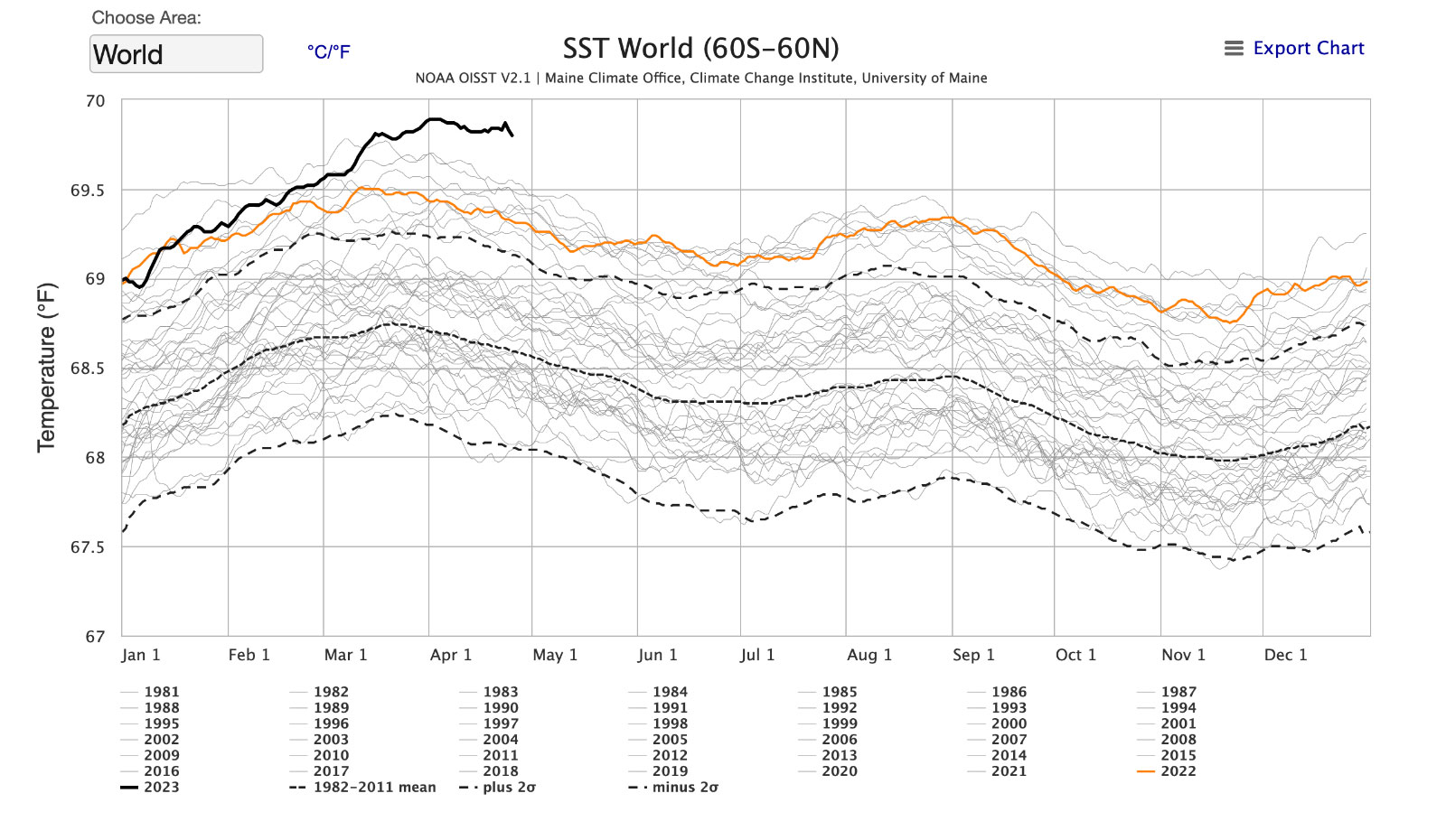This story was originally published by Grist. Sign up for Grist’s weekly newsletter here.
By Zoya Teirstein, Grist
The world’s oceans have reached their warmest levels in modern history, outpacing climate forecasts and alarming scientists. Daily ocean temperatures have been trending warmer than normal every day for the past month and a half, approximately. Experts warn the pattern does not bode well for marine life and human well-being.
While the difference in temperature between this year and the same period in 2022 comes down to just a few tenths of a degree, looked at over the long term, the increase represents a significant jump. Average sea surface temperatures this spring are roughly 1.5 degrees Fahrenheit warmer than they were in 1986, one of the first years that real-time satellite ocean temperature data was available.

“The oceans are enormous, so they don’t warm very quickly ordinarily,” Robert Rohde, a physicist at the environmental data science nonprofit Berkeley Earth, told Grist. “This is an unusually abrupt rise to a level that’s above what it’s been at any previous year.”
The abnormal warmth is especially concerning as the planet’s weather patterns shift from a La Niña cycle — which has had a cooling effect on much of the planet for the past three years — to an El Niño, which is a harbinger of above-average global temperatures. El Niño is characterized by ocean temperatures in the Pacific Ocean that are between 3 to 5 degrees F above average. But that phenomenon hasn’t officially started yet.

Experts are still scrambling to figure out what exactly is behind the spike, but there is wide consensus that both El Niño and climate change play a role.
“It appears at the moment that we are seeing the early stages of an El Niño emerging,” Rohde said. “And the breadth of area that is affected by that warmth really points to climate change being a factor.”
Oceans have absorbed a massive amount of the carbon dioxide that humans have generated since the Industrial Revolution. In total, oceans have absorbed some 90% of the heat caused by human-induced climate change. But that benefit comes with a devastating cost. The globe’s oceans have become warmer and more acidic over time, which has wide-ranging repercussions for marine life and human well-being. Rising ocean temperatures lead to changing circulation patterns, coral bleaching, sea-level rise, changes in fish migration and marine food webs, and ocean deoxygenation — when oceanic “dead zones” form.
Scientists have cautioned that the ocean cannot absorb emissions forever — there will come a time when the water bodies grow so warm they begin to emit carbon dioxide instead of absorbing it. The recent, sustained spike in sea surface temperatures throws the long-term viability of the world’s oceans into sharp relief. “This is heading in an unprecedented direction, and could be taking us into uncharted territory,” Ben Webber, a professor of climate science at the University of East Anglia, told the Guardian.
This article originally appeared in Grist at https://grist.org/extreme-weather/a-record-warm-streak-in-the-oceans-has-scientists-worried/.
Grist is a nonprofit, independent media organization dedicated to telling stories of climate solutions and a just future. Learn more at Grist.org



